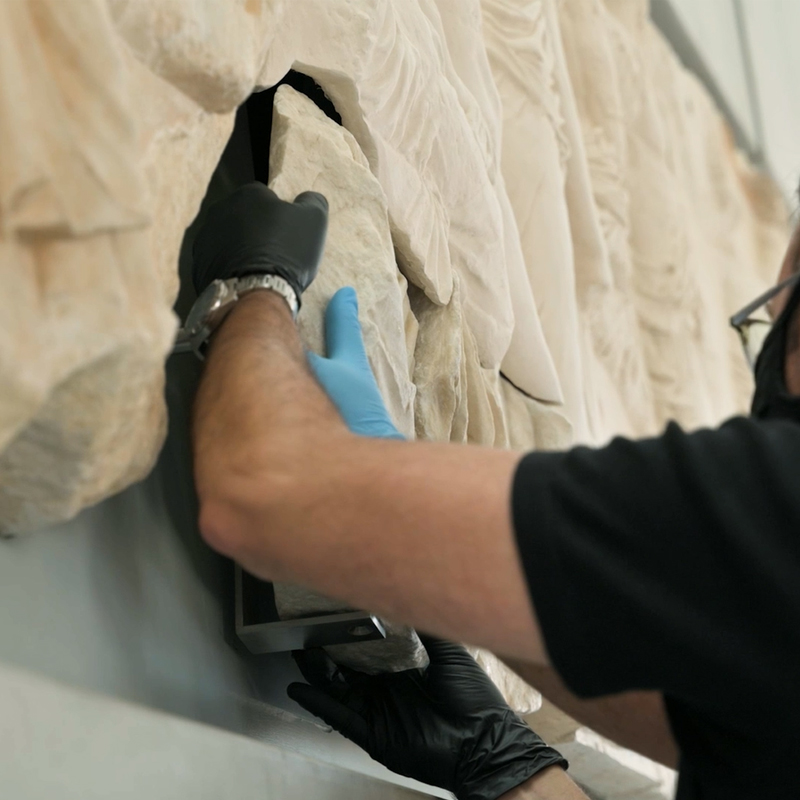04 June 2022 - 04 June 2022
The permanent reunification of the "Fagan fragment" at the Acropolis Museum
It is with great pleasure that the renowned “Fagan fragment” from the Antonino Salinas Museum in Palermo was permanently reunited in the east frieze of the Parthenon at the Acropolis Museum, where it belongs forever.
This piece belongs to block VI of the east frieze of the Parthenon that portrays the seated gods of Olympus watching the Panathenaic procession and the presentation of the woven veil (peplos) to Athena, the city’s patron goddess. The fragment depicts the legs’ extremities of Artemis, goddess of hunting among others, as she is gazing the procession approaching the great temple.
This reunification is the result of the systematic work of all parties involved, from Sicily and Greece, the love and friendship the two countries share, their faith in the contribution of the classical Hellenic civilization in the history of humanity, and the Parthenon as a monument-symbol of world cultural heritage. This is the first reunification of a part from the architectural sculptures of the Parthenon, a deposit forever, without mentioning words such as grant, loan or purchase, terms always rejected by the Greek State.
The permanent reunification of the fragment took place on Saturday 4 June 2022, in a ceremony in the emblematic Parthenon Gallery, presence of the Minister of Culture and Sports, Mrs. Lina Mendoni, the Secretary General of Culture, Mr. George Didaskalou, the Italian Ministry of Culture’s General Director of Museums, Prof. Massimo Osanna, the Acropolis Museum President of the Board of Directors, Prof. Dimitris Pandermalis, the General Director of the Acropolis Museum, Prof. Nikos Stampolidis and the Director of the A. Salinas Museum, Dr. Caterina Greco. The speech of Cultural Heritage Assessore & Sicilian Identity Councelor, Dr. Alberto Samonà, was presented on video, and also the message of Italian Minister of Culture, Mr. Dario Franceschini, was read by the General Director of the Acropolis Museum, Prof. Nikos Stampolidis.


















